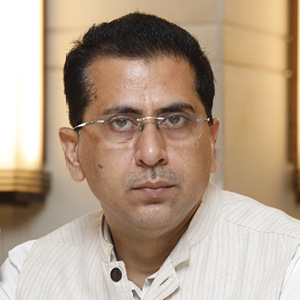Mr Rohit Vaswani
Bhartiya Vitta Salahkar Samiti (BVSS)
Mr Rohit Vaswani has over 25 years of experience of handling matters related to Indirect Taxes including GST, Excise, Service Tax & VAT including GST implementation, consultancy, legal opinions, GST due diligence, GST system development, search and seizure, investigations, show cause notices, appeals, advance rulings and other related services. He is on the Advisory Board of Bhartitya Vista Sahalhar Samiti (BVSS), a leading think tank of Indian finance professionals. He is a qualified ‘Mediator’ under Delhi Dispute Resolution Society (DDRS), Government of NCT of Delhi since more than a decade and working as Mediator with Telecom Disputes Settlement and Appellate Tribunal (TDSAT).

